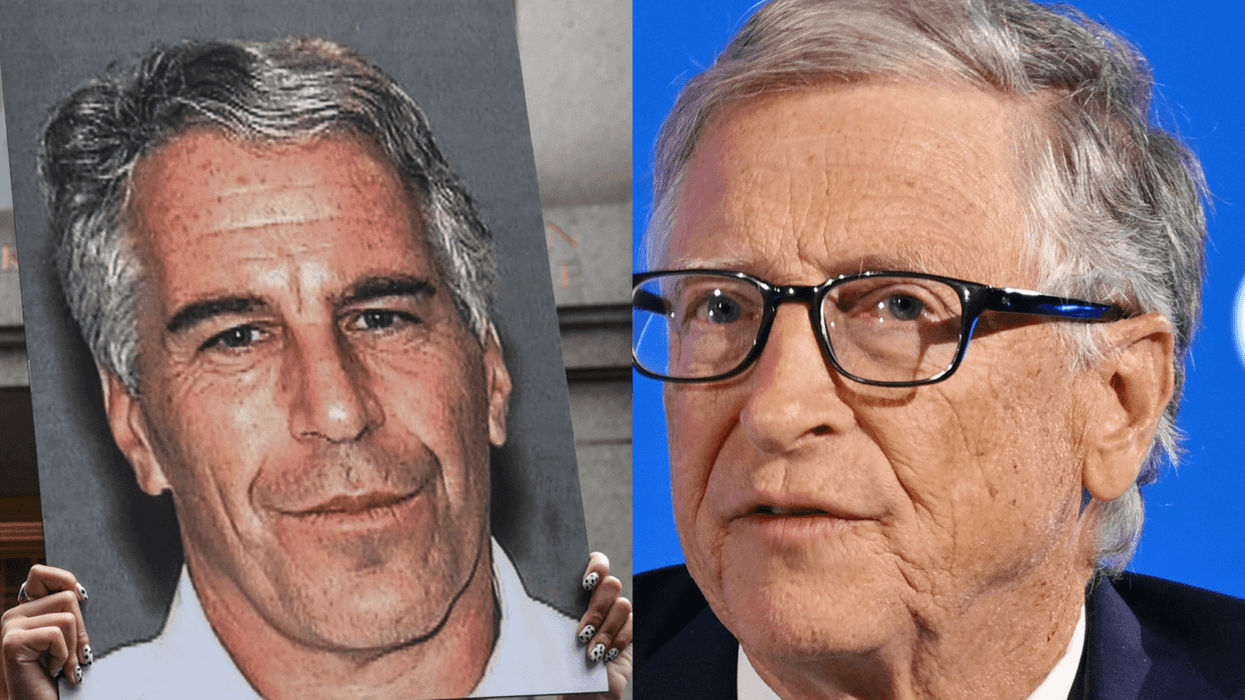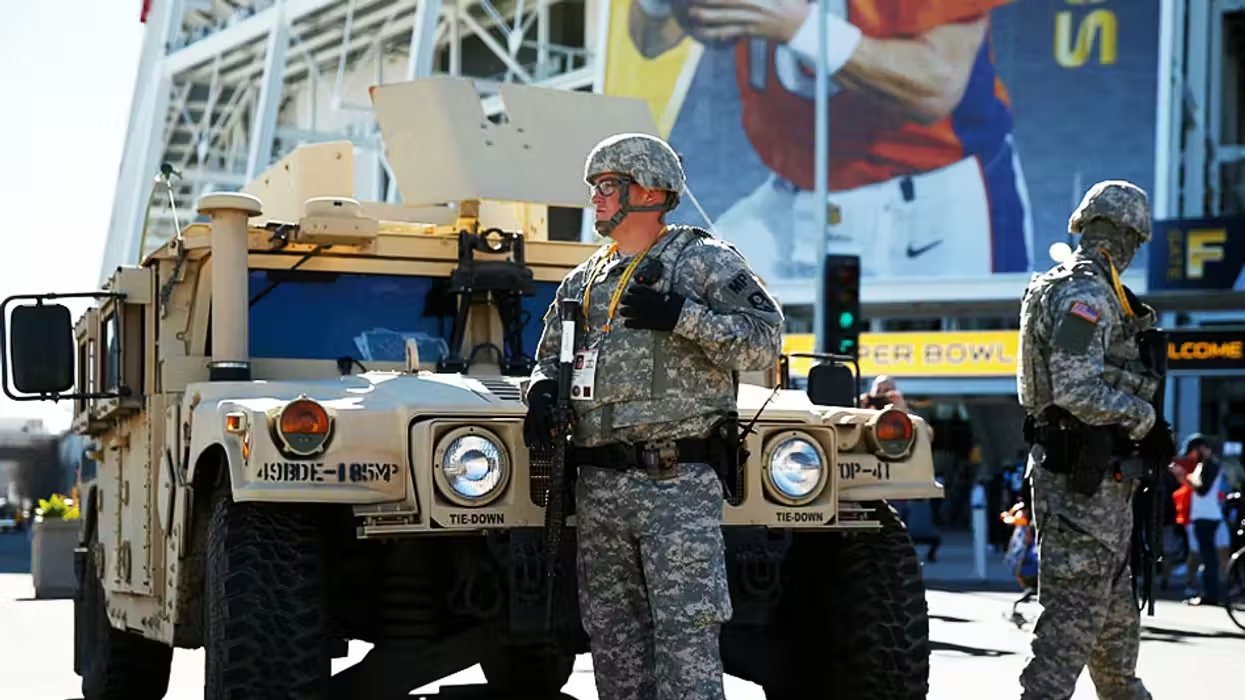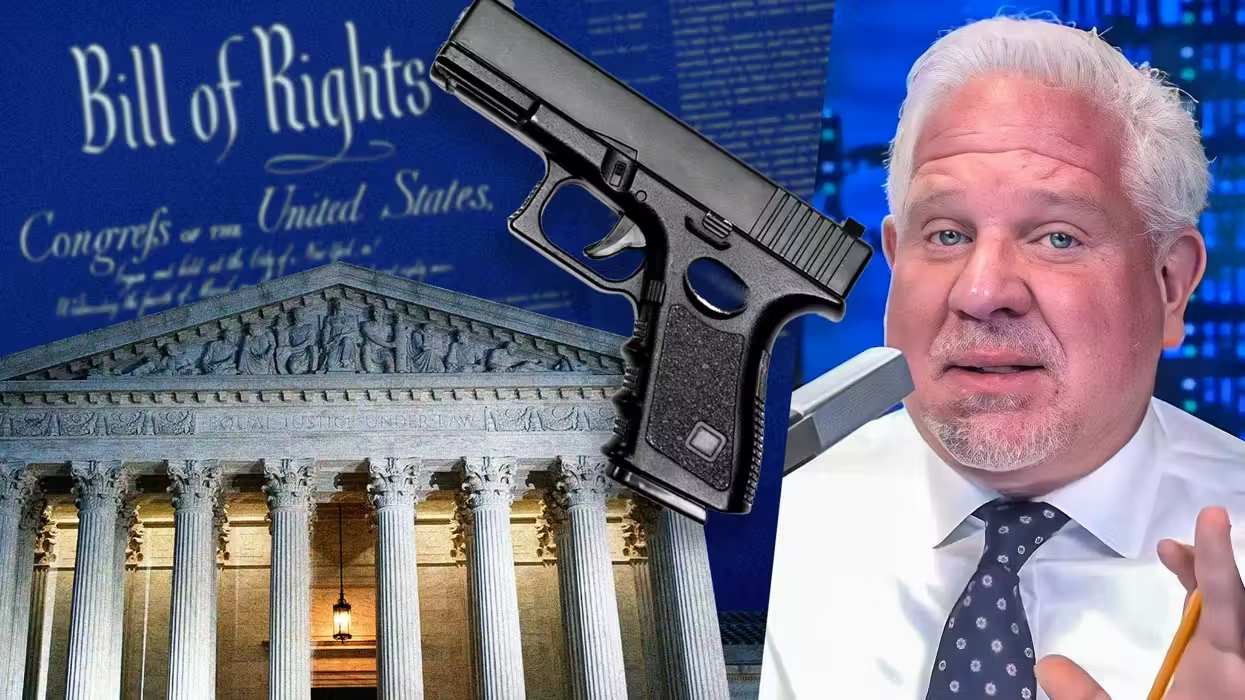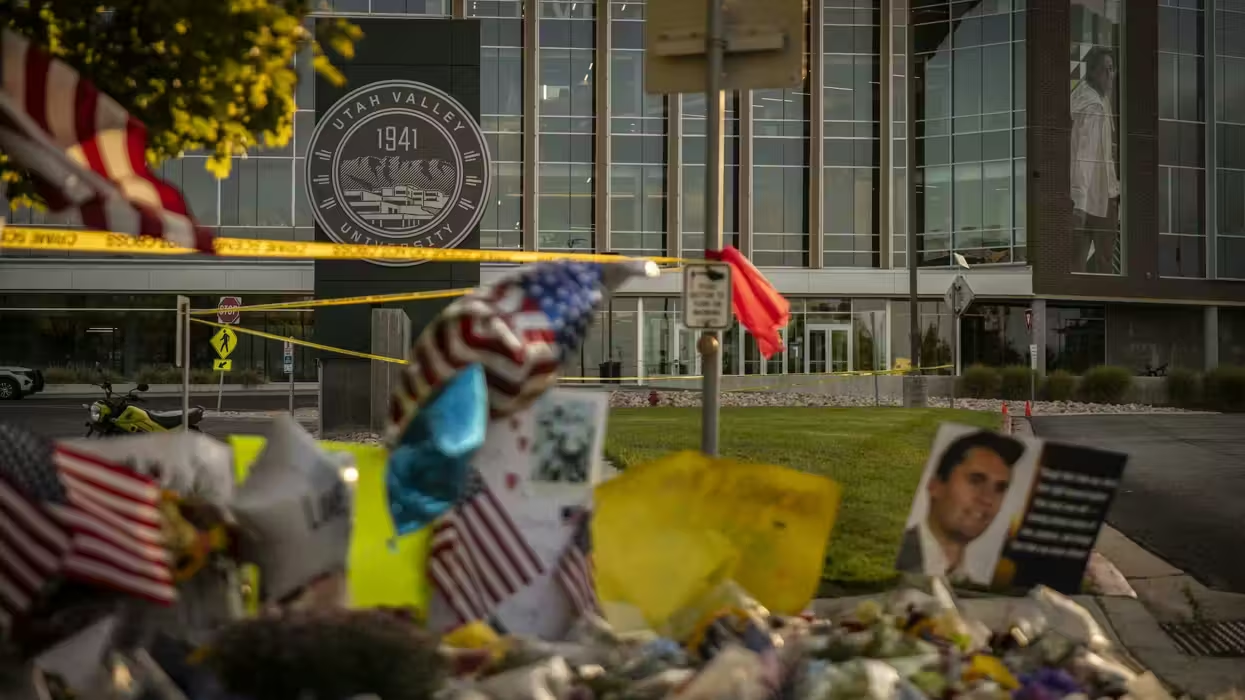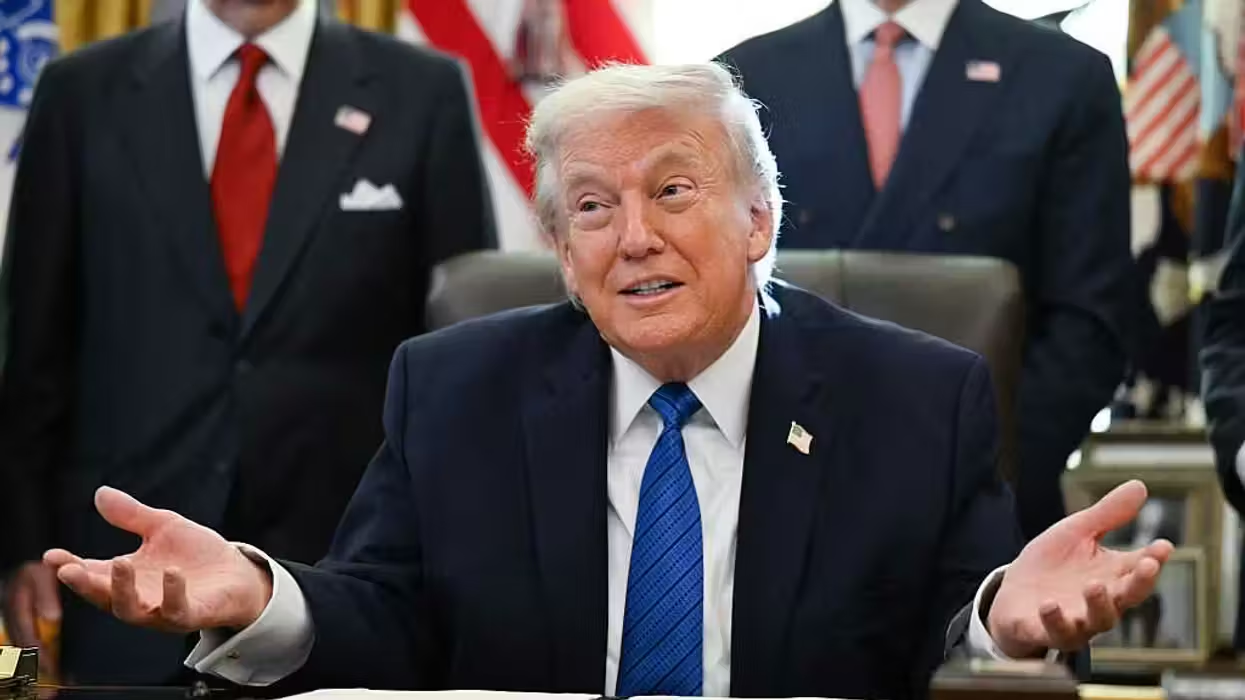
© 2026 Blaze Media LLC. All rights reserved.
Ronald Reagan Supported an Assault Weapons Ban, Says Obama -- The Potentially Surprising Details
January 16, 2013
President Barack Obama is fond of selling his policies by citing the support of former Republican/conservative luminaries. And arguably, no star shines brighter in the conservative firmament than former President Ronald Reagan. So it should surprise no one that President Obama, when casting about for a person to invoke in his current-day battle against gun control, would seek any evidence possible that Reagan might have supported that position, or a similar position. As it happens, Obama got his evidence:
Second: Congress should restore a ban on military-style assault weapons, and a 10-round limit for magazines. (Applause.) The type of assault rifle used in Aurora, for example, when paired with high-capacity magazines, has one purpose -- to pump out as many bullets as possible, as quickly as possible; to do as much damage, using bullets often designed to inflict maximum damage.And that's what allowed the gunman in Aurora to shoot 70 people -- 70 people -- killing 12 in a matter of minutes. Weapons designed for the theater of war have no place in a movie theater. A majority of Americans agree with us on this.
And, by the way, so did Ronald Reagan, one of the staunchest defenders of the Second Amendment, who wrote to Congress in 1994, urging them -- this is Ronald Reagan speaking -- urging them to “listen to the American public and to the law enforcement community and support a ban on the further manufacture of [military-style assault] weapons.”
Obama did not explain his reference to Reagan, which might justifiably have left many observers either skeptical or scratching their heads in confusion. After all, the idea of Reagan lobbying for one of the more infamously despised pieces of left-leaning gun legislation is counterintuitive, to say the least. More to the point, this is hardly the first time Obama has cited Reagan before as a dubious source of inspiration. As Benny Johnson reported on TheBlaze in April of last year:
“I’m not the first president to call for this idea that everyone has to do their fair share,” the president noted. Quoting one Reagan speech, Obama insisted the 40th President would consider our tax loopholes today “crazy.”
“He thought that in America the wealthiest should pay their fair share and he said so,” Obama assured.
He then went on to call the Reagan “That wild eyed, socialist, tax-hiking, class warrior” in a sarcastic reference to some of the titles that Obama himself has accumulated.
“That position might disqualify him from the Republican primaries these days, but what Ronald Reagan was calling for then is the same thing we’re calling for — a return to basic fairness and responsibility.”
The President ended his comparison, “If it will help convince folks in Congress to make the right choice, we could call it the Reagan rule instead of the Buffett rule.”
Yet unlike Obama's assertion about taxes, which is at odds in spirit with Reagan's own tax reforms, evidence for the idea that Reagan genuinely supported a ban on assault weapons exists, and we are here to examine and, in some cases, explain it.
The Evidence
The piece of evidence that has been cited most extensively (often on liberal blogs) is a letter written in 1994 and cosigned by Reagan, former President Jimmy Carter and former President Gerald Ford supporting then-President Clinton's assault weapons ban. Here is the text of that letter, via Daily Kos:
May 3, 1994To Members of the U.S. House of Representatives:
We are writing to urge your support for a ban on the domestic manufacture of military-style assault weapons. This is a matter of vital importance to the public safety. Although assualt weapons account for less than 1% of the guns in circulation, they account for nearly 10% of the guns traced to crime.
Every major law enforcement organization in America and dozens of leading labor, medical, religious, civil rights and civic groups support such a ban. Most importantly, poll after poll shows that the American public overwhelmingly support a ban on assault weapons. A 1993 CNN/USA Today/Gallup Poll found that 77% of Americans support a ban on the manufacture, sale, and possession of semi-automatic assault guns, such as the AK-47.
The 1989 import ban resulted in an impressive 40% drop in imported assault weapons traced to crime between 1989 and 1991, but the killing continues. Last year, a killer armed with two TEC9s killed eight people at a San Francisco law firm and wounded several others. During the past five years, more than 40 law enforcement officers have been killed or wounded in the line of duty by an assault weapon.
While we recognize that assault weapon legislation will not stop all assault weapon crime, statistics prove that we can dry up the supply of these guns, making them less accessible to criminals. We urge you to listen to the American public and to the law enforcement community and support a ban on the further manufacture of these weapons.
Sincerely,
Gerald R. Ford
Jimmy Carter
Ronald Reagan
However, a form letter from a former president on a current issue of the day need not necessarily have that president's personal fingerprints on it, and especially given that Reagan was diagnosed with Alzheimers later the same year this letter was sent, we needed more evidence to suggest that Reagan himself personally supported the idea. As such, we went back to news coverage from 1994 to see how the issue was being treated, then.
According to a story in the Los Angeles Times, it checks out: Reagan did support the ban.
Moreover, as Buzzfeed has documented in a longer piece exploring the passage of the Assault Weapons Ban, Reagan's influence over the debate about that bill amounted to more than just one form letter. He actively sought out support from Republicans and defied the NRA, and may have been the person who was ultimately responsible for the passage of the bill by getting two former opponents to back it:
As the assault weapon ban vote neared, Reagan — who as president had signed 1986 legislation loosening restrictions on guns — wrote a letter with former Presidents Ford and Carter to the House of Representatives urging them to vote in favor of the ban.[...]Congressman Scott Klug, a Republican from Wisconsin was an opponent of the assault weapon ban and the day before the vote stated his opposition to the ban. Klug only changed his voted after "a last minute plea from President Reagan" in the form of a handwritten note.
''Dear Scott: As a longtime gun owner and supporter of the right to bear arms, I, too, have carefully thought about this issue. I am convinced that the limitations imposed in this bill are absolutely necessary," Reagan wrote Klug. "I know there is heavy pressure on you to go the other way, but I strongly urge you to join me in supporting this bill. It must be passed. Sincerely, Ronald Reagan.''
''I can think of no one who has been a stronger supporter of law and order and a stronger supporter of the Second Amendment,'' Klug said in a statement regarding Reagan's note announcing his support for the ban.
Another former Congressman, New Hampshire Democrat Dick Swett, also credited the former President with influencing his vote.
So not only did Reagan support the assault weapons ban, but he actively campaigned for it and made sure to get his fingerprints all over it. Obama's reference to the previous President is undeniably correct.
However, this fact raises an important question - that is, why would a president whose legacy from his time in office is one of unabashed conservatism suddenly jump to support such a liberal cause?
Why Reagan Might Have Supported the Assault Weapons Ban
Obviously, it's difficult to speculate on such a question without being able to get inside Reagan's head. However, there is plenty of evidence from Reagan's own life, as well as his tenure in office both as president and as Governor of California, to suggest two contributing factors to his embrace of gun control, which we will tackle in turn:
1. The assassination attempt on Reagan
As many people who lived through the Reagan years, or who have studied them in detail, will recall, Reagan was the victim of an assassination attempt early in his first term as President by the deranged would-be killer John Hinckley. And despite the former President's seemingly nonchalant response to this event as it occurred (he quipped, "I hope you're a Republican" to the attending surgeon), it apparently left a deep traumatic scar on him. In fact, the assassination attempt is what Reagan himself fingered as motivating his thinking about this issue in an op ed supporting gun control in 1991:
I was lucky. The bullet that hit me bounced off a rib and lodged in my lung, an inch from my heart. It was a very close call. Twice they could not find my pulse. But the bullet's missing my heart, the skill of the doctors and nurses at George Washington University Hospital and the steadfast support of my wife, Nancy, saved my life.Jim Brady, my press secretary, who was standing next to me, wasn't as lucky. A bullet entered the left side of his forehead, near his eye, and passed through the right side of his brain before it exited. The skills of the George Washington University medical team, plus his amazing determination and the grit and spirit of his wife, Sarah, pulled Jim through. His recovery has been remarkable, but he still lives with physical pain every day and must spend much of his time in a wheelchair.[...]
This nightmare might never have happened if legislation that is before Congress now -- the Brady bill -- had been law back in 1981.
Named for Jim Brady, this legislation would establish a national seven-day waiting period before a handgun purchaser could take delivery. It would allow local law enforcement officials to do background checks for criminal records or known histories of mental disturbances. Those with such records would be prohibited from buying the handguns.
Some of Reagan's rhetoric here might sound understandable, even to NRA members. Gun advocates are not uniformly opposed to all background checks and many support better resources to screen out mentally ill buyers. In this sense, Reagan would fit well within the mainstream of his own party, even if his support of the 1991 Brady Bill was novel at the time he wrote the above op ed.
However, there's a lot of daylight between the Brady Bill and its seven day waiting period and screening processes, and an all-out assault weapons ban. So why would President Reagan support both the latter and the former? Here things get murky, but another contributing factor may be found in his tenure as Governor of California.
2. Opposition to the Black Panthers
As it happens, if President Obama's researchers had wanted to find a real whopper for him to cite in his speech, they could have gone beyond even Reagan himself and pointed out that the NRA itself has supported gun control as recently as the late 60's. In fact, in one of the NRA's most high profile (and controversial) victories from the late 60's, then-Governor Ronald Reagan was a key partner. That victory was the passage of the Mulford Act.
What was the Mulford Act? Nothing less than an outright ban on carrying guns in public places, a law that would today sound draconian in general, let alone a piece of legislation with support from the NRA. Yet at the time, the law had support from the NRA and was signed by Reagan without any hand wringing whatsoever. What gave?
Quite simply, the law was being passed to target a group that many of today's conservatives would find just as noxious as they did then - specifically, the Black Panthers. At the time, the Panthers had deep roots in Oakland, California, and were engaged in "safety patrols," described this way by PBS:
The Police Patrols had become an integral part of BPP community policy. Members of the BPP would listen to police calls on a short wave radio, rush to the scene of the arrest with law books in hand and inform the person being arrested of their constitutional rights. BPP members also happened to carry loaded weapons, which were publicly displayed, but were careful to stand no closer than ten feet from the arrest so as not to interfere with the arrest.
This arguable vigilante justice quite understandably unnerved more than a few people, especially when the Black Panthers began rallying and openly protesting police behavior in the aftermath of the shooting of African-American man Denzel Dowell. The Mulford Act, dubbed "The Panther Bill" by the California press, was meant to ensure that such rallies would remain free of gun violence, and also to disarm the Panthers themselves, thus keeping what many people saw as a group of heavily armed, paramilitary street thugs from effecting civil war with the police. And indeed, its passage saw a massive protest from the Panthers at the California State Capitol. PBS again:
Passage of the Mulford Bill would essentially end the Panther Police Patrols, so the BPP sent a group to Sacramento, California on May 2nd, 1967 to protest. The group carried loaded rifles and shotguns, publicly displayed and entered the State Capitol building to read aloud Executive Mandate Number 1, which was in opposition to the Mulford Bill. They tried to enter the Assembly Chamber but were forced out of this public place where they then read Executive Mandate Number 1 out on the lawn.
Needless to say, this act remains controversial today, with some liberals calling the NRA racist (to say nothing of Reagan) for wanting to stop blacks from protecting themselves from police brutality. However, for our purposes, it shows that especially in the case of the 1994 assault weapons ban -- which shows some similarities to the Mulford Act -- Reagan might have seen similarities to a previous NRA-backed piece of legislation that had imposed a much more draconian anti-gun regimen in the name of preserving public order.
And consider this: Reagan still got the endorsement of the NRA when he ran for President in 1980, which raises an important point: Not only did Reagan support one of the more forceful anti-gun laws of the 60's, but he never had to explain his support for that law, or pay any kind of evident political price for it. As such, when combined with the attempt on his life by a lunatic, one can easily see how Reagan could combine his already uneasy feelings about gun after the assassination attempt with his previous political experience passing gun bans as Governor of California to produce a position in favor of banning all assault weapons.
This position no doubt made sense to him, but as some conservatives observed after the 2008 elections, there are places where conservatives might want to get beyond Reagan, and indeed have, in the case of this position. Nevertheless, if President Obama wants to fly the flag of a man that one of his most ruthless constituencies despises as a racist and oppressor, further alienating that very constituency, there is nothing in the historical record to stop him.
Want to leave a tip?
We answer to you. Help keep our content free of advertisers and big tech censorship by leaving a tip today.
Want to join the conversation?
Already a subscriber?
more stories
Sign up for the Blaze newsletter
By signing up, you agree to our Privacy Policy and Terms of Use, and agree to receive content that may sometimes include advertisements. You may opt out at any time.
Related Content
© 2026 Blaze Media LLC. All rights reserved.
Get the stories that matter most delivered directly to your inbox.
By signing up, you agree to our Privacy Policy and Terms of Use, and agree to receive content that may sometimes include advertisements. You may opt out at any time.


